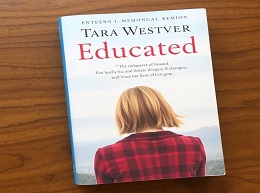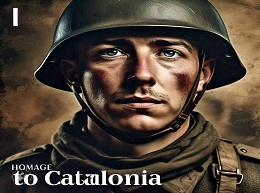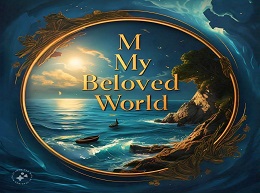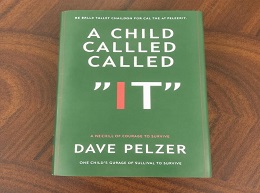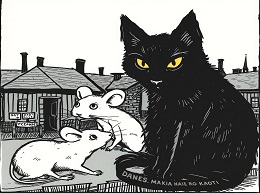Born a Crime

A Deep Dive into "Born a Crime": Trevor Noah's Compelling Memoir
"Born a Crime: Stories from a South African Childhood" is a compelling memoir by Trevor Noah, the renowned comedian and host of "The Daily Show." Published in 2016, the book delves into Noah's experiences growing up as a mixed-race child during and after apartheid in South Africa. With a blend of humor, poignancy, and sharp social commentary, Noah offers readers a vivid portrait of his childhood and the complex social dynamics of his homeland.
The Context of Apartheid
Apartheid, the system of institutionalized racial segregation and discrimination in South Africa, serves as the backdrop for Noah's memoir. Under apartheid laws, Noah’s birth was literally a crime; his mother was black, and his father was white, making their union illegal.
Trevor Noah: A Brief Biography
Trevor Noah was born on February 20, 1984, in Johannesburg, South Africa. His mixed-race heritage positioned him uniquely within the rigid racial classifications of apartheid. Noah’s early life was marked by challenges and ingenuity, navigating a world where his very existence defied the law.
The Complexities of Identity
One of the central themes of "Born a Crime" is the complexity of identity in a racially divided society.
Example: Navigating Multiple Identities
Noah recounts how he struggled to fit in with different racial groups, being "too black" for the white community and "too white" for the black community. This duality forced him to become adaptable, a skill he would later leverage in his comedy career.
The Resilience of Motherhood
Noah's mother, Patricia Nombuyiselo Noah, is a pivotal figure in the memoir, embodying resilience, defiance, and love.
Example: Patricia’s Defiance of Apartheid Laws
Patricia’s determination to give her son a better life is evident in her bold decisions, such as secretly living in white areas or insisting that Trevor receive a good education. Her influence is a testament to the strength and perseverance of mothers facing oppressive circumstances.
The Power of Humor
Humor is a recurring theme in the memoir, serving as a coping mechanism and a means of survival.
Example: Using Humor to Navigate Danger
Noah often used humor to diffuse potentially dangerous situations, such as when he talks his way out of being beaten by bullies or finds clever ways to avoid trouble with the police. His ability to find humor in dire circumstances highlights the transformative power of comedy.
The Impact of Poverty
Noah’s experiences growing up in poverty are depicted with stark honesty, shedding light on the socio-economic disparities in South Africa.
Example: Creative Solutions to Economic Hardship
Noah describes various entrepreneurial ventures he undertook as a child, from selling pirated CDs to hustling for pocket money. These stories illustrate his resourcefulness and the broader economic struggles faced by many South Africans.
Engaging and Accessible Prose
Noah’s narrative style is engaging, with a conversational tone that makes complex subjects accessible to readers.
Example: Anecdotes and Personal Stories
The memoir is filled with anecdotes that blend humor and gravity, such as the story of being thrown out of a moving car by his mother to escape an abusive stepfather. These personal stories provide a gripping and intimate look into Noah’s life.
Honest and Reflective Voice
Noah’s honesty and reflective voice are central to the memoir’s appeal, providing candid insights into his thoughts and emotions.
Example: Reflecting on Apartheid’s Legacy
Noah does not shy away from discussing the lingering effects of apartheid, both on a personal and societal level. His reflections on systemic racism and its impact on his life and career add depth to the narrative.
Childhood Mischief and Adventures
Noah’s childhood is depicted as a series of adventures and misadventures, each revealing different aspects of his character and environment.
Example: The Great Indoor Toilet Adventure
One memorable story involves young Noah’s fascination with indoor plumbing, leading him to defecate on a piece of newspaper and attempt to flush it down the toilet, causing chaos. This humorous incident underscores his curiosity and the challenges of growing up in poverty.
Educational and Social Struggles
Education plays a crucial role in Noah’s development, despite the obstacles he faces.
Example: Overcoming Educational Barriers
Noah’s mother’s insistence on a good education leads him to attend various schools, each with its own set of challenges. His experiences range from being ostracized at a private Catholic school to finding camaraderie in a township school, highlighting the disparities in educational opportunities.
The Influence of Apartheid on Personal Relationships
Noah’s personal relationships are profoundly affected by apartheid’s racial divisions and societal norms.
Example: Forbidden Relationships
Noah’s relationships, particularly romantic ones, often faced societal scrutiny due to his mixed heritage. His relationship with a black girl named Babiki, for example, is complicated by racial expectations and societal pressures, illustrating the personal toll of apartheid.
Influence on Noah’s Career
The themes and experiences detailed in "Born a Crime" significantly influenced Noah’s comedic style and public persona.
Example: Comedy as Social Commentary
Noah’s ability to weave social commentary into his comedy is rooted in his personal experiences with racism and poverty. This approach has made him a distinctive voice in comedy, known for tackling serious issues with wit and insight.
Broader Cultural Impact
"Born a Crime" has resonated with readers globally, shedding light on the personal impact of apartheid and the broader themes of identity and resilience.
Example: Educational Use and Inspiration
The memoir has been used in educational settings to teach about apartheid, racism, and resilience. Noah’s story inspires readers to reflect on their own identities and the societal structures that shape their lives.
"Born a Crime: Stories from a South African Childhood" is more than a memoir; it is a poignant exploration of identity, resilience, and the power of humor in the face of adversity. Trevor Noah’s engaging storytelling, coupled with his honest reflections, offers readers a unique perspective on the complexities of growing up under apartheid. His journey from a "crime" at birth to a global comedic icon is a testament to the human spirit’s capacity to overcome even the most formidable obstacles.
By sharing his story with such transparency and humor, Trevor Noah not only highlights the personal and societal impacts of apartheid but also provides a powerful narrative that encourages readers to consider their own stories and the forces that shape them.
